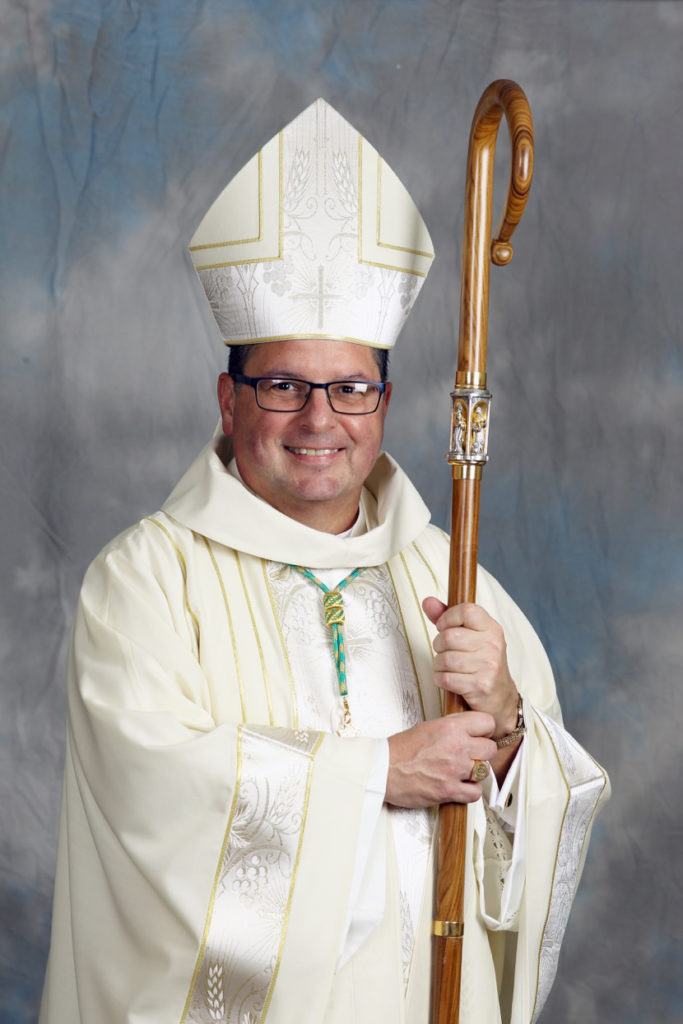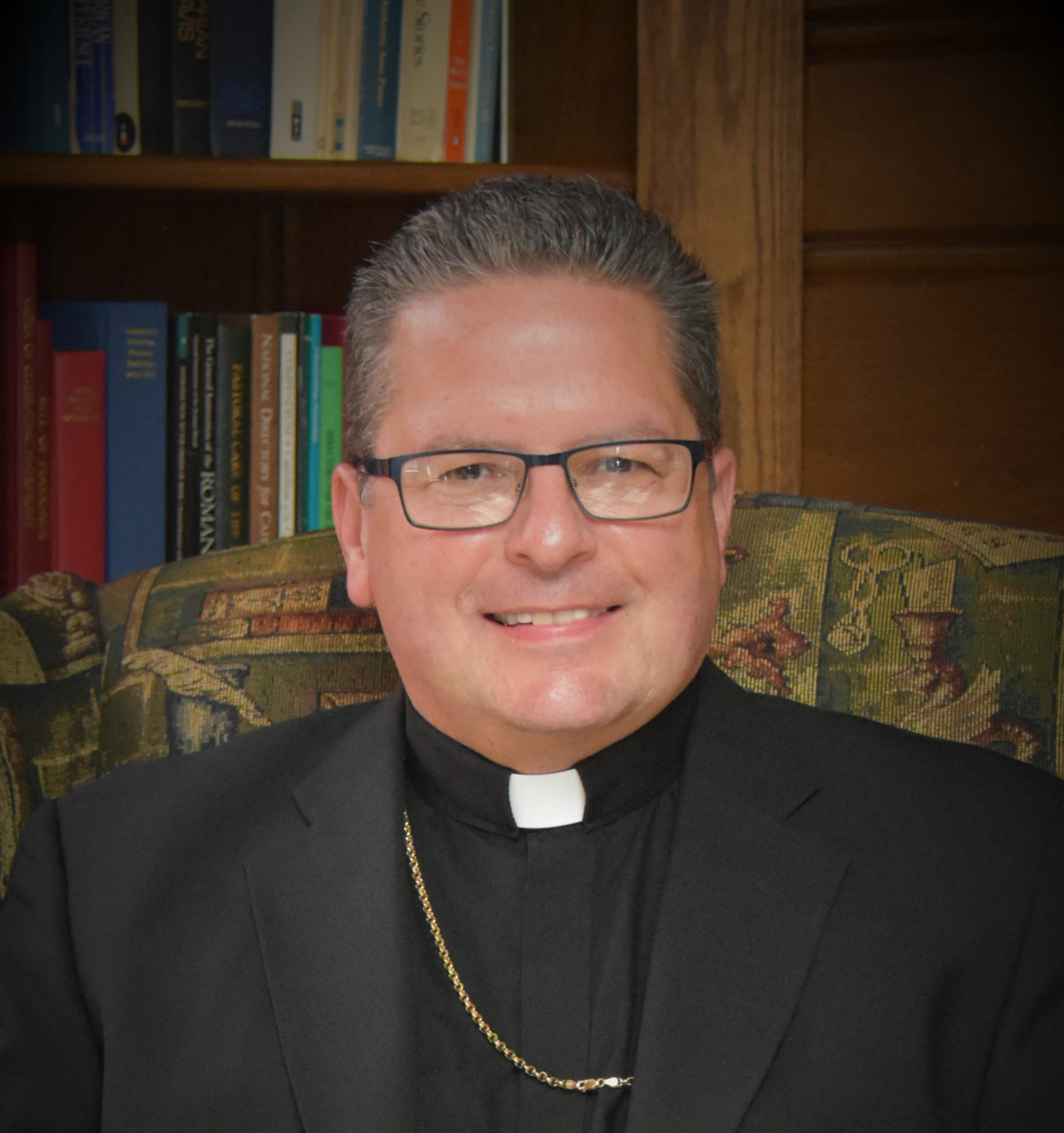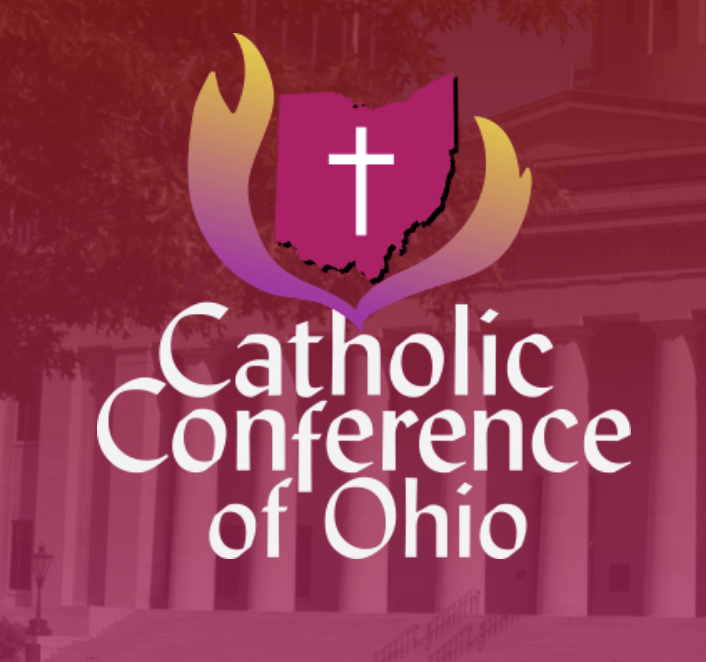MOST REV. DAVID J. BONNAR
Bishop of Youngstown
This is adapted from Bishop Bonnar’s October 17, 2021 homily during the the Diocese of Youngstown’s Opening Mass for the Synod on Synodality, at St. Columba Cathedral.
Sometimes when trying to understand certain realities, words fail. As a result, there is a need to turn to imagery which best captures the essence of things. As the Church began to look at herself during the Second Vatican Council, she used descriptive imagery. For example, in “Lumen Gentium,” the Dogmatic Constitution on the Church, the Church presented beautiful and concrete imagery to illustrate her identity. The Church defines herself as a Sacrament, the family of God, a seed of the Kingdom, a sheepfold and cultivated field, the building of God, a holy temple, spotless spouse of the spotless lamb, people of God and Body of Christ.
The Council fathers devote an entire chapter to what is a called “A Pilgrim Church.” The Church is viewed as a pilgrim people on the way to heaven together. Since his inception as Pope, Pope Francis has developed his own imagery to describe the Church, speaking of it as a field hospital, a place of encounter with Jesus and a missionary entity that goes out to the peripheries to proclaim the Joy of the Gospel.
The chief drive for the Church, according to Pope Francis, must always be evangelization, bringing the Gospel of Joy to the farthest corners of the world. In paragraph 27 of “Evangelii Gaudium,” “The Joy of the Gospel,” the Holy Father shares his dream for each one of us. He writes, “I dream of a ‘missionary option,’ that is, a missionary impulse capable of transforming everything, so that the Church’s customs, ways of doing things, times and schedules, language and structures can be suitably channeled for the evangelization of today’s world rather than for her self-preservation.” Essentially the Holy Father is challenging us to resist complacency and the tendency to hold on and to embrace renewal by being prepared to let go, for the Church does not exist for herself but for the world. As committed Catholics, we come to Holy Mass so that we might go forth into the world together to share the Joy of the Gospel. I am reminded of something I heard not too long ago. “The Church is not a place where you come to get but where you go to give.
We are not to exist for ourselves as a Church. Bishop Mark Seitz is the Bishop of El Paso, Texas. His diocese is on the border. He tells the story of a phone call he received from a couple that had just lost their baby to a sudden death. They wanted a Catholic burial. When the bishop asked them where they lived, he discovered that they had scheduled the funeral liturgy in a church miles from their home, clearly outside of the parish territory. When the bishop asked them why they were not having the funeral in the parish of the territory in which they lived, they said, “Bishop, we thought that was a private church.” We cannot allow our parishes to become private clubs for a select group of people. We come to Church so that we might go forth for others. Our doors must always be opened without any sense of discrimination or exclusion.
The Synod on Synodality, which officially began last Sunday in Rome by our Holy Father and begins today in every diocese in the world with a Mass in diocesan cathedrals, is the continuation of Pope Francis’ missionary dream seeking to bring the Good News to the world, especially to the peripheries with the hope of bringing renewal to the Church, a renewal that breathes new life and change into the Church from the Holy Spirit. He is inviting us all to share with him this missionary dream.
The word “Synod” comes from a Greek word which means “journeying together.” Today we begin a journey together rooted in prayer and conversation. Our prayer must be one that is marked with confidence. The author of the letter of the Hebrews in today’s second reading writes, “So let us confidently approach the throne of grace to receive mercy and to find grace for timely help.”
We absolutely need to be confident in our petition for mercy and grace. In a time of growing secularism, increased individualism and painful clericalism, the Church needs mercy and grace. What is more, the clergy sexual abuse scandals, changing demographics and financial constraints triggering parish mergers and church closures as well as the continued pandemic have hurt the Church dramatically. In some instances, we have lost our way and have succumbed to maintenance over mission. Nevertheless, the Church and her structures are not about maintenance and the status quo but mission and extension of oneself to others. The mission remains – to proclaim the Gospel of Joy and to invite everyone to a personal encounter with Jesus Christ.
The Synod on Synodality offers an opportunity for us as a Church to discuss how we might better realize the mission and leave no one behind.
The Opening Prayer, known as the Collect, prayed moments ago, grounds us as we proceed. We prayed, “Almighty ever-living God, grant that we may always conform our will to yours and serve your majesty in sincerity of heart.” All our efforts in this journey must seek God’s will with a sincerity of heart.
In the first reading today, we hear from the prophet Isaiah about the suffering servant who gives his life as an offering and we are told, “the will of God shall be accomplished through him.” To serve God is to know and to do his will. Of course, the embracing of his will demands not only confidence but trust. How fitting we pray with the psalmist these words, “Lord, let your mercy be upon us as we place our trust in you.” Our journey together must necessarily involve trust in God and one another.
In the Gospel we encounter two disciples with a bold confidence, or perhaps it is ignorance, that empowers them to seek a perk from Jesus. They want Jesus to ensure that they will one day sit at his right and left hand when he comes into glory. Jesus uses this as a teachable moment. He asks them if they can drink of the cup or be baptized like him. With confidence they respond, “We can.”
The cup in many ways is an experience of life and all that God pours into someone. In Psalm 23 we hear about one’s cup flowing over. But the cup also includes taking what comes your way. It means knowing and doing God’s will. More importantly, drinking the cup means carrying the cross. Jesus is asking James and John if they can follow him to Calvary and be submerged with him into death.
The version of this account from Mark’s gospel is different from Matthew’s in which the question is posed by Salome. Mark shows the disciples warts and all. It is clearly more honest about the humanness of the disciples.
That same kind of honesty is something we need to bring to ourselves as we assess our own spirit of discipleship. Honesty is just as vital as we begin walking and talking and listening together on this Synodal path. It is imperative that we are honest in our conversations with each other about the imperfections, wounds, struggles and pains of the Church. At the same time, we need to take ownership of our own failures and omissions in the proclamation of the Gospel.
If we wish to be first or sit at the right or left of Jesus in his glory there is only one way, we must become people of mission. Pope Francis notes that “Mission is at once a passion for Jesus and a passion for his people” (Joy of the Gospel, 268). Together we are called to be missionary disciples. In so many ways, Pope Francis has made mission and missionary discipleship the overriding theme of his pontificate. As we embrace this call, the Holy Father offers a charge. He writes, “If we wish to commit ourselves fully and perseveringly, we need to leave behind every other motivation” and seek what Jesus sought, the glory of the Father.
To be authentic evangelizers, according to Pope Francis, we cannot keep the wounds of Jesus at arm’s length. As we journey together, we need to share in other’s sufferings. We are part of a common home and a common family. What brings us closer to God in union with him is love. As Pope Emeritus Benedict reminds us, “Closing our eyes to our neighbor also blinds us to God.”
When Pope John XXIII convened the Second Vatican Council, he spoke about breaking open the windows of the Church to allow the Holy Spirit in. My dear brothers and sisters, the Synod on Synodality is a time for us to open the windows of our heart more fully to God and one another in prayer and conversation with a particular emphasis on listening and trusting. This journey cannot be about preserving what is but being open to what can be so that the Church will be renewed.
As we walk this path together our guide must always be the Holy Spirit. As Pope Francis says in “The Joy of the Gospel,” “Yet there is no greater freedom than that of allowing oneself to be guided by the Holy Spirit, renouncing the attempt to plan and control everything to the last detail, and instead letting him enlighten, guide, and direct us, leading us wherever he wills. The Holy Spirit knows well what is needed in every time and place.” (Joy of the Gospel, 280)
Together let us go forth to the peripheries and proclaim the joy of the Gospel on this path together and allow the Holy Spirit to do his work. I wonder what new images of Church can emerge with all of us walking and working together. One thing is certain it seems to me. And this was brought home from a presentation I heard from Cardinal Czerny at the recent Bishop’s Mission Conference. He basically said that the Holy Father and the Synod on Synodality is letting us know that the Church is not so much a noun but a verb. We are being called to be church together, repairing, healing, serving, proclaiming and journeying together. Let us go forth with the grace of the Holy Spirit to be the Church in this portion of the Lord’s vineyard!



